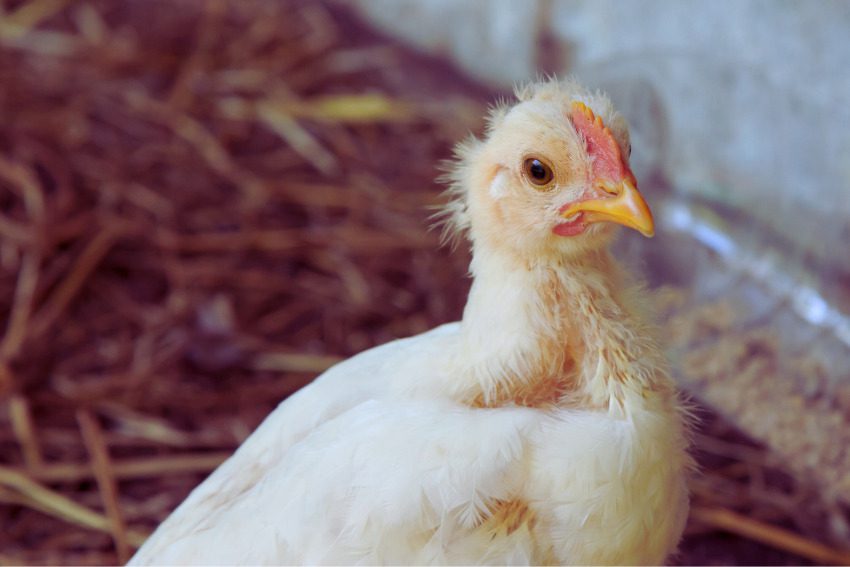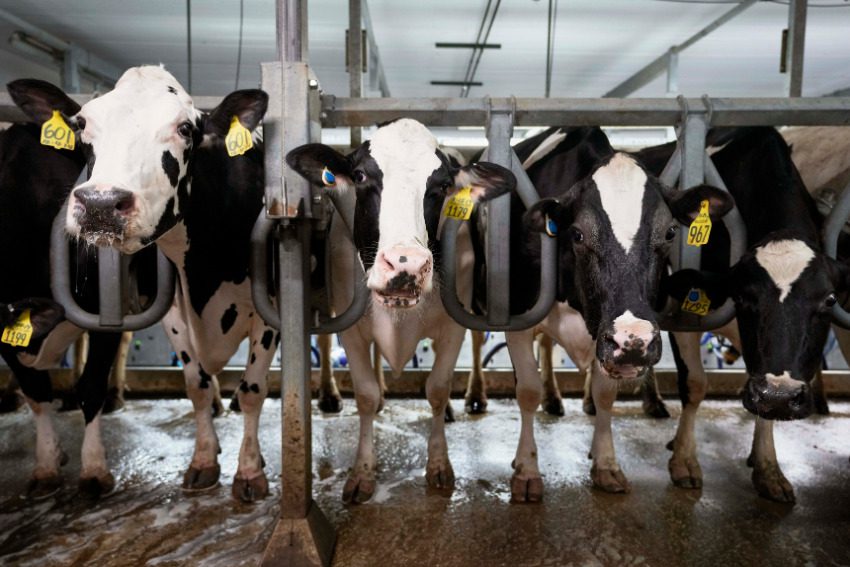
The Michigan Department of Agriculture and Rural Development has detected the presence of highly pathogenic avian influenza in one backyard flock from Jackson County and two commercial poultry facilities in Ottawa County.
MICHIGAN—State officials plan to quarantine and kill flocks of diseased chickens that were recently discovered at two Ottawa County poultry facilities and at a home in Jackson County.
The Michigan State University Veterinary Diagnostic Laboratory last week detected highly pathogenic avian influenza (HPAI) at two commercial poultry facilities in Ottawa County, as well as in one backyard flock from Jackson County—marking at least the fifth and sixth cases to be reported in Michigan since the state tracked its largest outbreak of the disease in May 2024.
The three flocks have since been quarantined and will soon be—or may already have been— “depopulated” to prevent further disease spread, Michigan Department of Agriculture and Rural Development Director Tim Boring said in a press release announcing the cases last week.
“Everyone has a role to play in protecting against HPAI and limiting its capability to take hold and spread,” Boring said. “Following biosecurity protocols, like using personal protective equipment when caring for animals, is critical to ensuring the health of humans and animals.”
Highly pathogenic avian influenza is a highly-contagious virus that can spread flock to flock, including by wild birds, through contact with infected animals, by equipment and on the clothing and shoes of caretakers. Cases have been climbing nationwide but officials at the US Centers for Disease Control and Prevention say the public health risk for avian influenza remains low.
The latest cases mark the first detection of HPAI reported in Jackson County, and at least the third detection of the disease in Ottawa County so far this winter. State officials have been monitoring sporadic outbreaks of the avian influenza in Michigan poultry and cattle since 2022.
State officials have said that no birds infected with HPAI will enter the commercial food chain.
Still, they’re actively reminding residents to properly handle and cook poultry and eggs.
“As HPAI continues to circulate in wild birds, taking steps to prevent both direct and indirect contact between wildlife and domestic animals is important to prevent disease introduction,” State Veterinarian Dr. Nora Wineland said in a statement. “Anyone caring for domestic animals needs to be aware of all the ways the virus could spread and take action to mitigate those risks.”
Whether it’s a few backyard birds or a large commercial flock, state officials also recommend a few key steps to help protect both the health and vitality of Michigan’s domestic birds.
That includes:
- Preventing contact between domestic and wild birds by bringing them indoors or ensuring their outdoor area is fully enclosed
- Washing your hands before and after handling birds as well as when moving between different coops
- Disinfecting boots and other gear when moving between coops
- Not sharing equipment or other supplies between coops or other farms
- Cleaning, disinfecting, or discarding equipment and other supplies between uses
- Using well or municipal water as drinking water for birds
- Keeping poultry feed secure to ensure there is no contact between the feed/feed ingredients and wild birds or rodents.
As a precaution, domestic bird owners and caretakers should also watch for multiple sudden deaths in their flocks, drops in egg production or water consumption, diarrhea, sneezing, or coughing, or a general increase in sick birds. If avian influenza is suspected, they should immediately contact MDARD at 800-292-3939 during the day or 517-373-0440 after hours.
Those who notice unusual or unexplained deaths among wild bird populations are also encouraged to report them to the Michigan Department of Natural Resources (DNR) using the DNR’s “Eyes in the Field” app or by calling the state wildlife disease laboratory 517-336-5030.
READ MORE: Highly pathogenic avian influenza detected in Ottawa County
For the latest Michigan news, follow The ‘Gander on Twitter.
Follow Political Correspondent Kyle Kaminski here.
Support Our Cause
Thank you for taking the time to read our work. Before you go, we hope you'll consider supporting our values-driven journalism, which has always strived to make clear what's really at stake for Michiganders and our future.
Since day one, our goal here at The 'Gander has always been to empower people across the state with fact-based news and information. We believe that when people are armed with knowledge about what's happening in their local, state, and federal governments—including who is working on their behalf and who is actively trying to block efforts aimed at improving the daily lives of Michigan families—they will be inspired to become civically engaged.


Lawmakers consider new rules for pet cemeteries
By Finn Mills, Capital News Service LANSING — A recent legislative proposal would tighten state regulations for pet cemeteries. “By establishing...

Climate change is making Great Lakes water birds sick, research shows
By Clara Lincolnhol, Capital News Service LANSING – Climate change is making it easier for Great Lakes waterbirds to get sick, according to a recent...

Law students, attorneys could advocate for animals in cruelty cases under new proposal
By Emilio Perez Ibarguen, Capital News Service LANSING – In March 1995, over 100 goats, horses, cows, rabbits and dogs – many malnourished, infected...

USDA orders nationwide testing of milk for bird flu to halt the virus
The US government on Friday ordered testing of the nation's milk supply for bird flu to better monitor the spread of the virus in dairy cows. Raw or...

11 animals you won’t believe are legal in Michigan
From coyotes and bobcats to otters and skunks, there are tons of wild animals that are legal to own in Michigan. If you ask someone what kind of pet...







